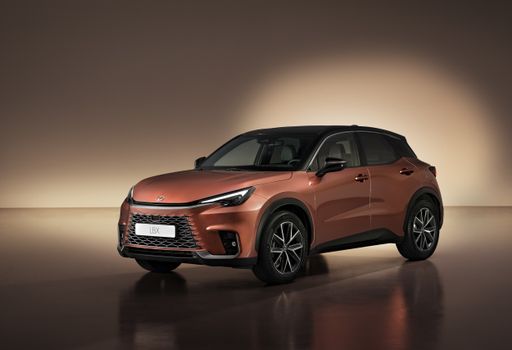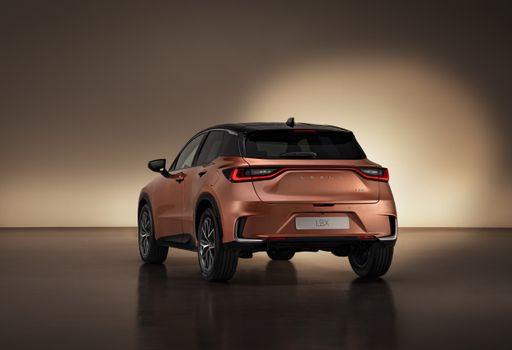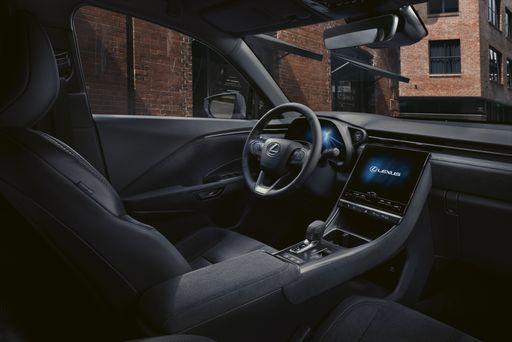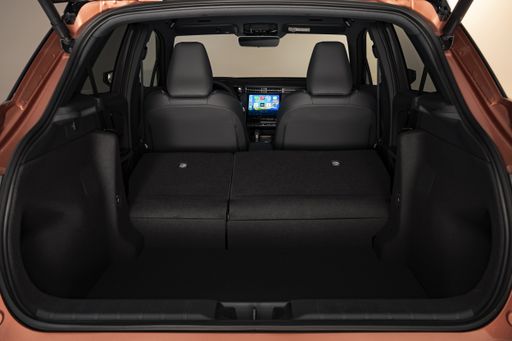Lexus LBX vs Toyota C-HR - Differences and prices compared
Compare performance (136 HP vs 223 HP), boot space and price (28300 £ vs 29100 £ ) at a glance. Find out which car is the better choice for you – Lexus LBX or Toyota C-HR?
Costs and Efficiency:
Price and efficiency are key factors when choosing a car – and this is often where the real differences emerge.
Lexus LBX has a minimal advantage in terms of price – it starts at 28300 £ , while the Toyota C-HR costs 29100 £ . That’s a price difference of around 857 £.
Fuel consumption also shows a difference: Toyota C-HR manages with 0.80 L and is therefore convincingly more efficient than the Lexus LBX with 4.50 L. The difference is about 3.70 L per 100 km.
Engine and Performance:
Under the bonnet, it becomes clear which model is tuned for sportiness and which one takes the lead when you hit the accelerator.
When it comes to engine power, the Toyota C-HR has a noticeable edge – offering 223 HP compared to 136 HP. That’s roughly 87 HP more horsepower.
In acceleration from 0 to 100 km/h, the Toyota C-HR is noticeable quicker – completing the sprint in 7.40 s, while the Lexus LBX takes 9.20 s. That’s about 1.80 s faster.
In terms of top speed, the Toyota C-HR performs slight better – reaching 180 km/h, while the Lexus LBX tops out at 170 km/h. The difference is around 10 km/h.
Space and Everyday Use:
Cabin size, boot volume and payload all play a role in everyday practicality. Here, comfort and flexibility make the difference.
Both vehicles offer seating for 5 people.
In curb weight, Lexus LBX is to a small extent lighter – 1280 kg compared to 1505 kg. The difference is around 225 kg.
In terms of boot space, the Toyota C-HR offers evident more room – 447 L compared to 332 L. That’s a difference of about 115 L.
In maximum load capacity, the Toyota C-HR performs a bit better – up to 1155 L, which is about 161 L more than the Lexus LBX.
When it comes to payload, Lexus LBX to a small extent takes the win – 475 kg compared to 425 kg. That’s a difference of about 50 kg.
Who wins the race?
The Toyota C-HR proves to be leaves the rival little chance and therefore becomes our DriveDuel Champion!
Toyota C-HR is the better all-rounder in this comparison.

Toyota C-HR
Costs and Consumption
View detailed analysis
Engine and Performance
View detailed analysis
Dimensions and Body
View detailed analysis
Lexus LBX
The Lexus LBX wraps premium touches and a surprisingly spacious cabin into a compact crossover that’s perfectly at home in town or heading out on longer drives. It wears the badge with quiet confidence, serving up a refined ride and clever packaging for buyers who want Lexus polish without shouting for attention.
details



Toyota C-HR
The Toyota C-HR cuts a striking figure with its angular styling and coupe-like profile, so you’ll never go unnoticed in the supermarket car park. It balances everyday practicality with a nimble, city-friendly personality, making routine commutes feel a touch more fun without asking for forgiveness.
details




Costs and Consumption |
|
|---|---|
|
Price
28300 - 40000 £
|
Price
29100 - 42800 £
|
|
Consumption L/100km
4.5 - 4.8 L
|
Consumption L/100km
0.8 - 5.1 L
|
|
Consumption kWh/100km
-
|
Consumption kWh/100km
-
|
|
Electric Range
-
|
Electric Range
68 km
|
|
Battery Capacity
-
|
Battery Capacity
-
|
|
co2
102 - 110 g/km
|
co2
17 - 115 g/km
|
|
Fuel tank capacity
36 L
|
Fuel tank capacity
43 L
|
Dimensions and Body |
|
|---|---|
|
Body Type
SUV
|
Body Type
SUV
|
|
Seats
5
|
Seats
5
|
|
Doors
5
|
Doors
5
|
|
Curb weight
1280 - 1365 kg
|
Curb weight
1505 - 1755 kg
|
|
Trunk capacity
255 - 332 L
|
Trunk capacity
350 - 447 L
|
|
Length
4190 mm
|
Length
4362 mm
|
|
Width
1825 mm
|
Width
1832 mm
|
|
Height
1560 mm
|
Height
1558 - 1564 mm
|
|
Max trunk capacity
992 - 994 L
|
Max trunk capacity
1076 - 1155 L
|
|
Payload
455 - 475 kg
|
Payload
375 - 425 kg
|
Engine and Performance |
|
|---|---|
|
Engine Type
Full Hybrid
|
Engine Type
Full Hybrid, Plugin Hybrid
|
|
Transmission
Automatic
|
Transmission
Automatic
|
|
Transmission Detail
CVT
|
Transmission Detail
CVT
|
|
Drive Type
Front-Wheel Drive, All-Wheel Drive
|
Drive Type
Front-Wheel Drive, All-Wheel Drive
|
|
Power HP
136 HP
|
Power HP
140 - 223 HP
|
|
Acceleration 0-100km/h
9.2 - 9.6 s
|
Acceleration 0-100km/h
7.4 - 9.9 s
|
|
Max Speed
170 km/h
|
Max Speed
175 - 180 km/h
|
|
Torque
185 Nm
|
Torque
-
|
|
Number of Cylinders
3
|
Number of Cylinders
4
|
|
Power kW
100 kW
|
Power kW
103 - 164 kW
|
|
Engine capacity
1490 cm3
|
Engine capacity
1798 - 1987 cm3
|
General |
|
|---|---|
|
Model Year
2025
|
Model Year
2024 - 2025
|
|
CO2 Efficiency Class
C
|
CO2 Efficiency Class
C, B
|
|
Brand
Lexus
|
Brand
Toyota
|
What drivetrain options does the Lexus LBX have?
Available configurations include Front-Wheel Drive or All-Wheel Drive.




